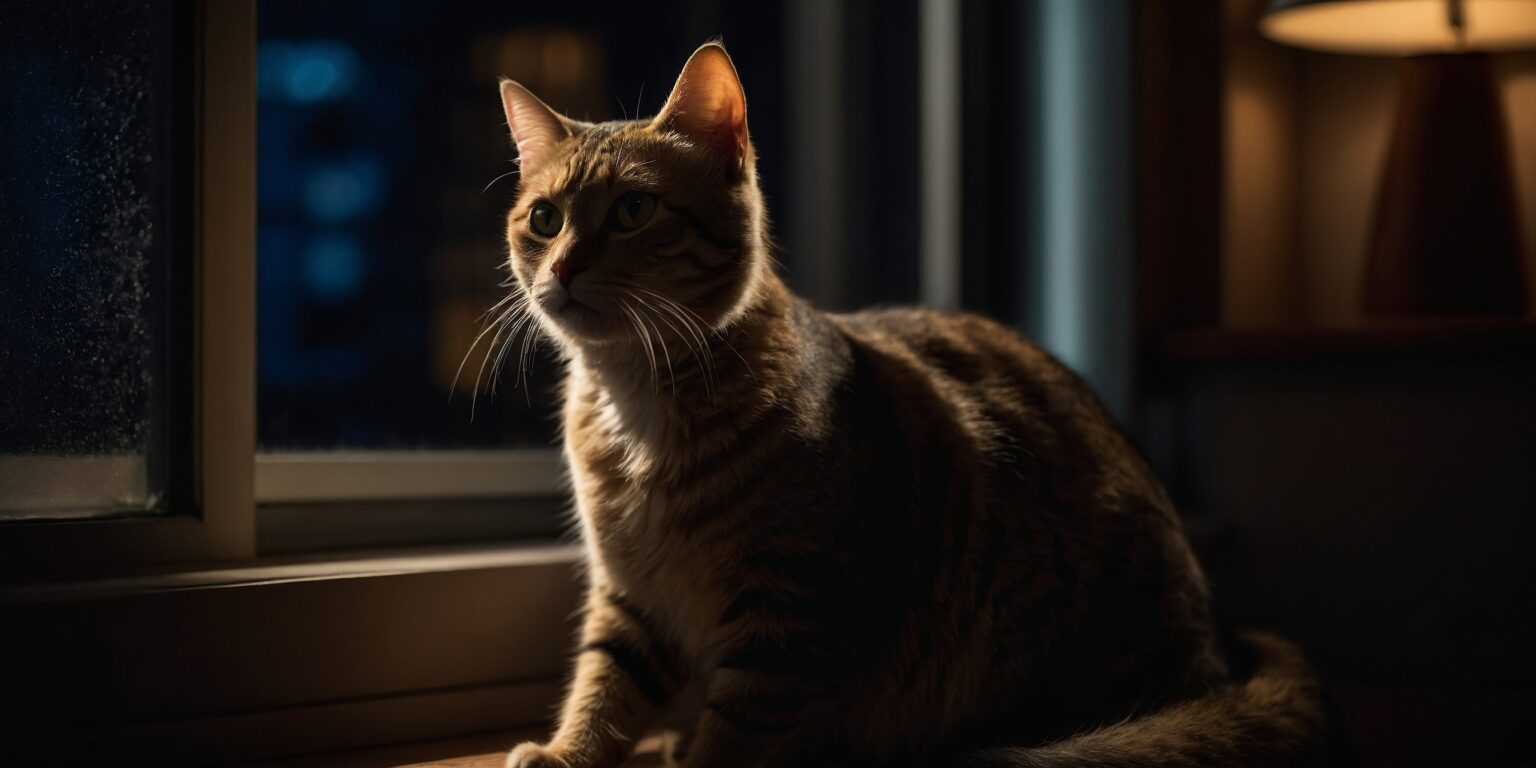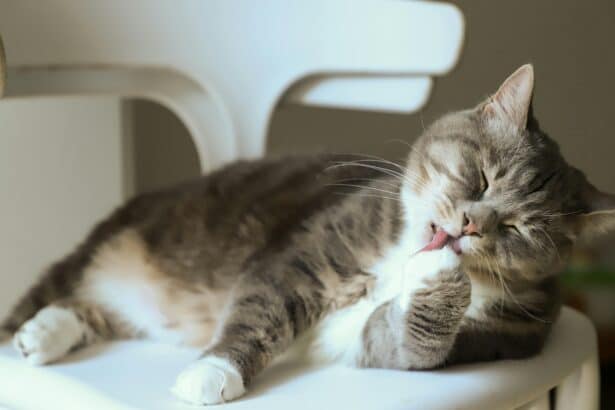Why does your cat meow at night? Here’s how to decode it and get your beauty sleep back.
You’re cocooned under the duvet when—mraaaooow. Again. Nighttime meows can feel mysterious, but they always have a reason. Let’s unpack what your feline is trying to say and how to gently turn down the volume.
Cat nights vs. human nights
Are cats really nocturnal?
Not quite. Cats are crepuscular, which means they’re naturally most active at dawn and dusk. It’s a leftover from their wild ancestors.
Their eyes are built for low light, so scurrying at 5 a.m. feels totally normal to them. Curious about that superpower? See how cats see in low light to understand those glow-in-the-dark eyes.
Fun fact: Adult cats rarely meow to other cats. That persistent meow is a “human-only” language they’ve perfected just for us.
Why do they ramp up at night?
They sleep loads during the day, bank energy, and then—party o’clock. Young or indoor cats especially need an evening energy outlet.
For seniors, nighttime vocalizing can also be linked to discomfort or disorientation. If it’s new or intense, keep an eye on it and talk to your vet.
Main reasons your cat meows at night
Boredom and loneliness
When the house is quiet, your cat may seek connection—and a little fun. Without enough play or stimulation, meowing becomes a way to say, “Hey, I’m awake. You?”
- Schedule a “hunt session” before bed: wand toy chase for 10–15 minutes.
- Offer puzzle feeders or foraging games to keep the brain busy.
- Set up cozy perches and a window view for night watch.
Pro tip (original): Freeze a thin smear of lickable treat on a silicone mat at bedtime. The slow, soothing licking can settle anxious meowers without sugar highs or crinkly-noisy packaging.
Hunger or thirst
Some cats inhale dinner at 6 p.m. and sing the midnight snack blues at 3 a.m. A small, protein-rich snack right after play can help.
Timed meals also work wonders. Explore an automatic feeder to deliver tiny portions through the night so you’re not the room-service human.
- Keep fresh water available (a fountain can encourage drinking).
- Split daily food into more, smaller meals.
- Avoid sudden diet changes at night—they can backfire.
Medical or age-related issues
Pain, hyperthyroidism, high blood pressure, dental trouble, kidney disease, or cognitive dysfunction can trigger nighttime meows. If your cat’s meowing is new, louder, or paired with other changes—pace, stare, miss the litter box—call your vet.
Here’s a helpful refresher on spotting warning signs: common cat diseases and how to notice them early.
Important: Never ignore sudden behavior changes in older cats; they’re often the first clue your kitty needs a check-up.
What actually works at 3 a.m.
Ignore “attention meows”—once needs are met
If you’ve ruled out hunger, health, and fear, the kindest response is often no response. Getting up, talking, or feeding reinforces meowing, and your cat learns that meow = payoff.
Common mistake to avoid: Don’t scold, spray, or lock your cat away abruptly. It increases stress and usually makes the meowing worse.
Create a sleep-friendly setup
- Evening routine: play (hunt), then meal, then grooming time—this mimics the natural “hunt–eat–sleep” cycle.
- Use quiet toys at night and remove crinkly ones from the bedroom.
- Try soft white noise for human sleepers; most cats don’t need a nightlight, but a dim one won’t hurt if it calms you.
Bonus idea: Place a “silent snack station” away from your bedroom with a silicone mat and a ceramic dish. It reduces clatter and keeps curious paws busy without waking you.
Build better days for quieter nights
More activity by day means less energy to burn by night. Rotate toys, add scent games, and refresh perches weekly to keep things novel.
If your cat’s temperament tends to be high-energy, choosing calmer companions in multi-cat homes can help. See the calmest cat breeds for inspiration if you’re thinking long-term harmony.
When to call the vet
Book a visit if meowing escalates, appears suddenly in a senior, or comes with weight loss, changes in thirst, bathroom habits, or confusion. Early treatment is kinder—and often simpler.
And remember: your cat isn’t being “naughty.” She’s communicating. With the right routine, enrichment, and a dash of patience, quiet nights return.
FAQ
How do I stop my cat from meowing at night?
Play a vigorous wand session before bed, feed a small snack after, and ignore attention-seeking meows once needs are met. Use a timed feeder to prevent hunger wake-ups.
Is nighttime meowing normal in older cats?
Some vocalization can happen, but new or intense night meows may signal pain, hyperthyroidism, hypertension, or cognitive changes. Speak to your vet.
Should I feed my cat when she meows at night?
Feeding in response to meowing teaches your cat to wake you. Instead, schedule late-evening calories or use a programmable feeder to break the pattern.
Which enrichment helps the most at night?
Pre-bed play, puzzle feeders, rotating toys, and window perches are great. Keep noisy toys out of the bedroom and offer calm licking activities at bedtime.








